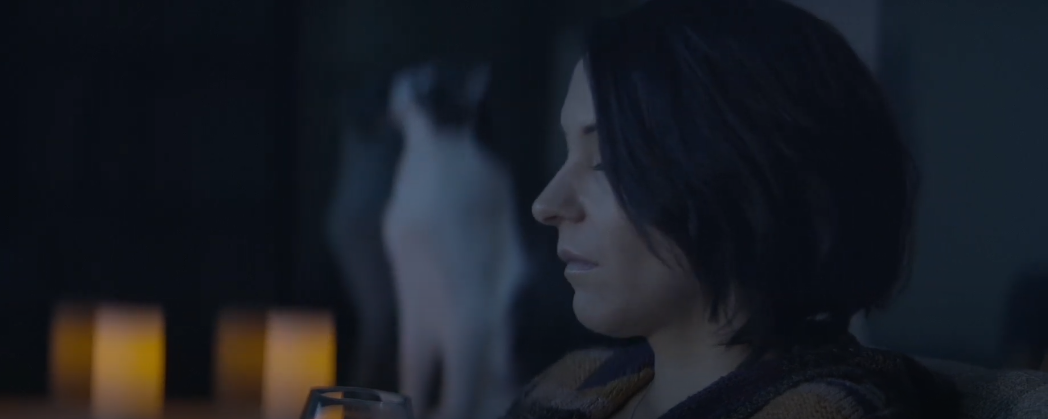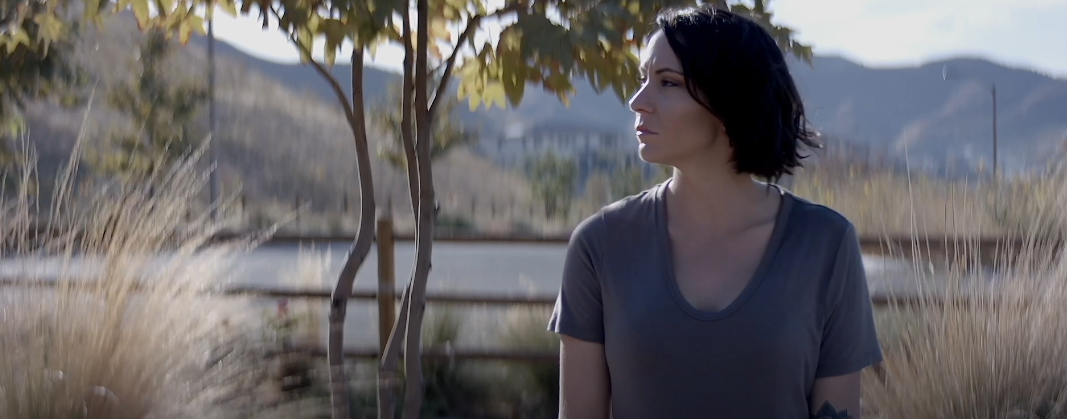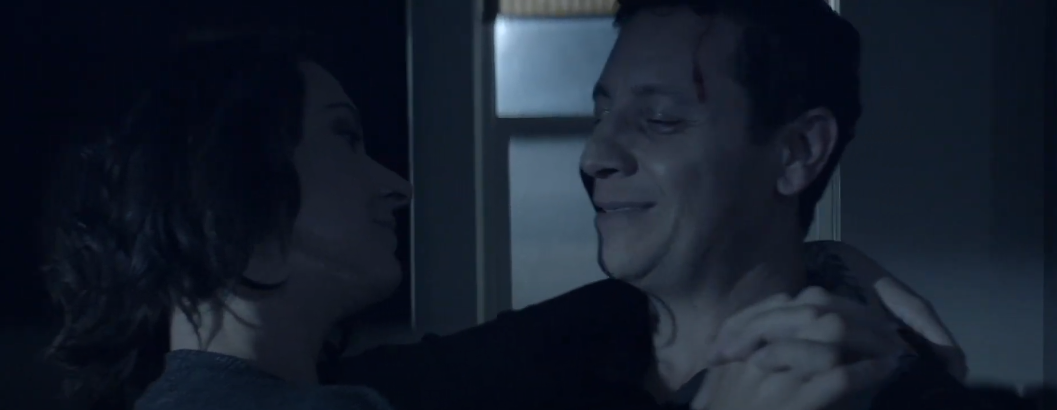Gregory Hatanaka’s Heartbeat wants to be a sleek, seductive throwback to the neon-soaked thrillers of the late ’80s and early ’90s — the kind where lust, greed, and danger pulse just beneath the surface. What it ends up being, however, is something stranger and harder to pin down: a glossy, low-budget experiment in style and tone that occasionally flirts with the Giallo aesthetic but never quite commits to its own madness.
Nicole D’Angelo stars as Jennifer Bailey, a once-promising investigative journalist who’s been pushed onto the business beat — a creative demotion that eats at her sense of purpose. When a string of gruesome murders begins to overlap with her old world of corporate intrigue, she’s pulled back into the fray by a confident yet volatile detective (Chris Spinelli). But as the investigation unfolds, Jennifer realizes she’s gotten too close to both the story and the killer.
D’Angelo delivers the film’s only truly grounded performance, managing to balance vulnerability with determination. She’s clearly the emotional center of Heartbeat, and without her, the film would likely collapse under the weight of its uneven performances. The supporting cast — including Spinelli, Shane Ryan, and cult favorite Lisa London — struggle to find a rhythm or tone that matches D’Angelo’s intensity. Many scenes feel like first takes, and the chemistry between characters often comes across as forced or mismatched.
Technically, the film is rough around the edges. The cinematography feels inconsistent, jumping from slickly lit sequences to others that look hastily composed. Editing choices, including a few awkward freeze-frame zooms, undercut any sense of tension the movie tries to build. The score, while energetic, tends to overstate each moment, telegraphing suspense long before the audience needs the cue.
That said, Heartbeat isn’t entirely without merit. Hatanaka’s direction, though uneven, has flashes of visual flair. The opening murder sequence — bloody, bold, and surprisingly brutal — hints at the more daring film Heartbeat could have been if it had leaned harder into its Giallo influences. There’s also something oddly captivating about its imperfections: the clunky dialogue, the melodramatic delivery, and the tonal swings between crime thriller and exploitation cinema.
As a result, Heartbeat becomes one of those curious indie efforts that’s easy to criticize but hard to fully dismiss. It’s not an outright failure so much as a fascinating near miss — a film that clearly has ideas and ambition but struggles with execution. D’Angelo gives it heart, and there’s genuine entertainment to be found, even if much of it is unintentional.
Verdict: Heartbeat beats faintly but never flatlines entirely. It’s uneven, awkward, and often unintentionally funny — yet it’s oddly watchable all the same.
Jessie Hobson



